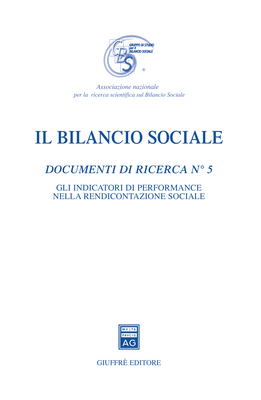Summary
In 2006, Italy introduced the "Bilancio Sociale" or Social Balance, which is a tool for measuring the social and environmental performance of organizations. This tool is based on a set of performance indicators that are used in social reporting. The performance indicators include measures related to the organization's social impact, such as employee welfare, community engagement, and environmental sustainability. The aim of the Bilancio Sociale is to encourage organizations to adopt a more comprehensive and responsible approach to their operations, and to be accountable to stakeholders for their social and environmental impact. By adopting the Bilancio Sociale, organizations can demonstrate their commitment to sustainable development and contribute to a more sustainable society.

We have sent you the download link, please check your inbox.
Download againSomething went wrong when trying to download this file.
Try again